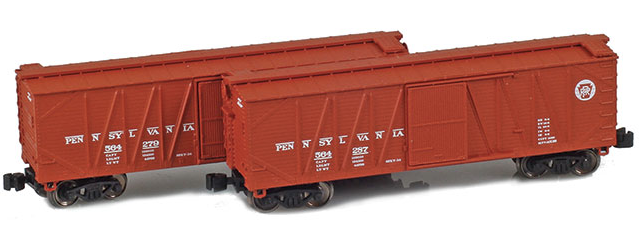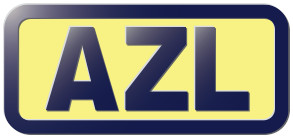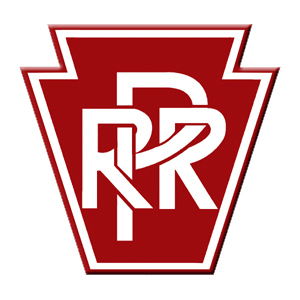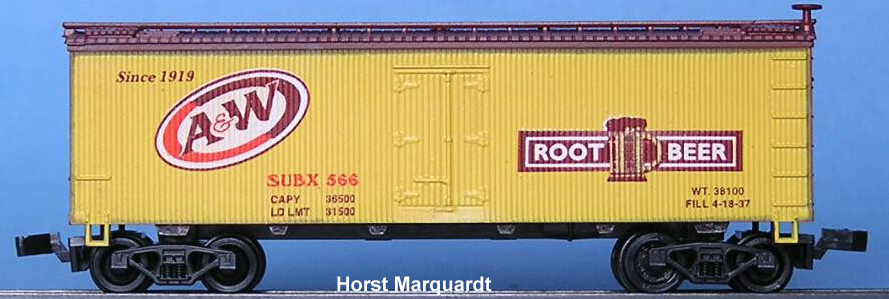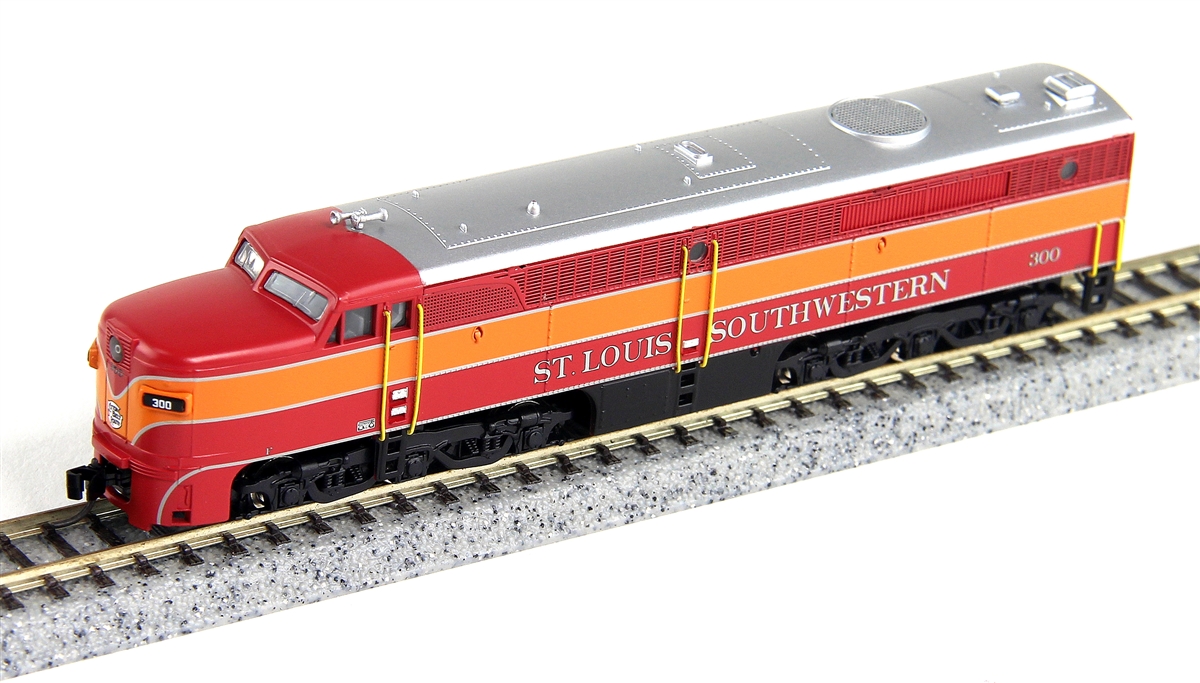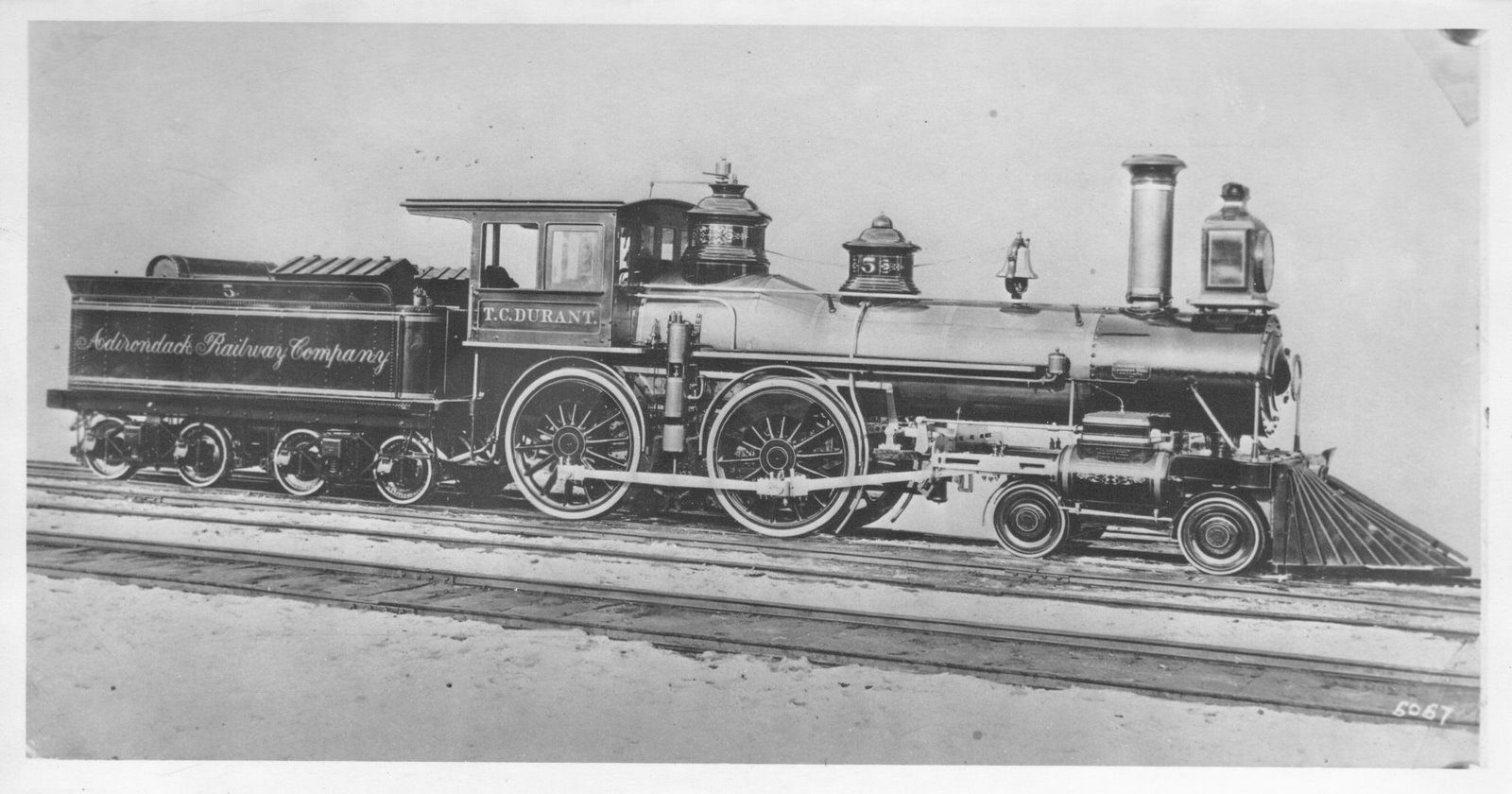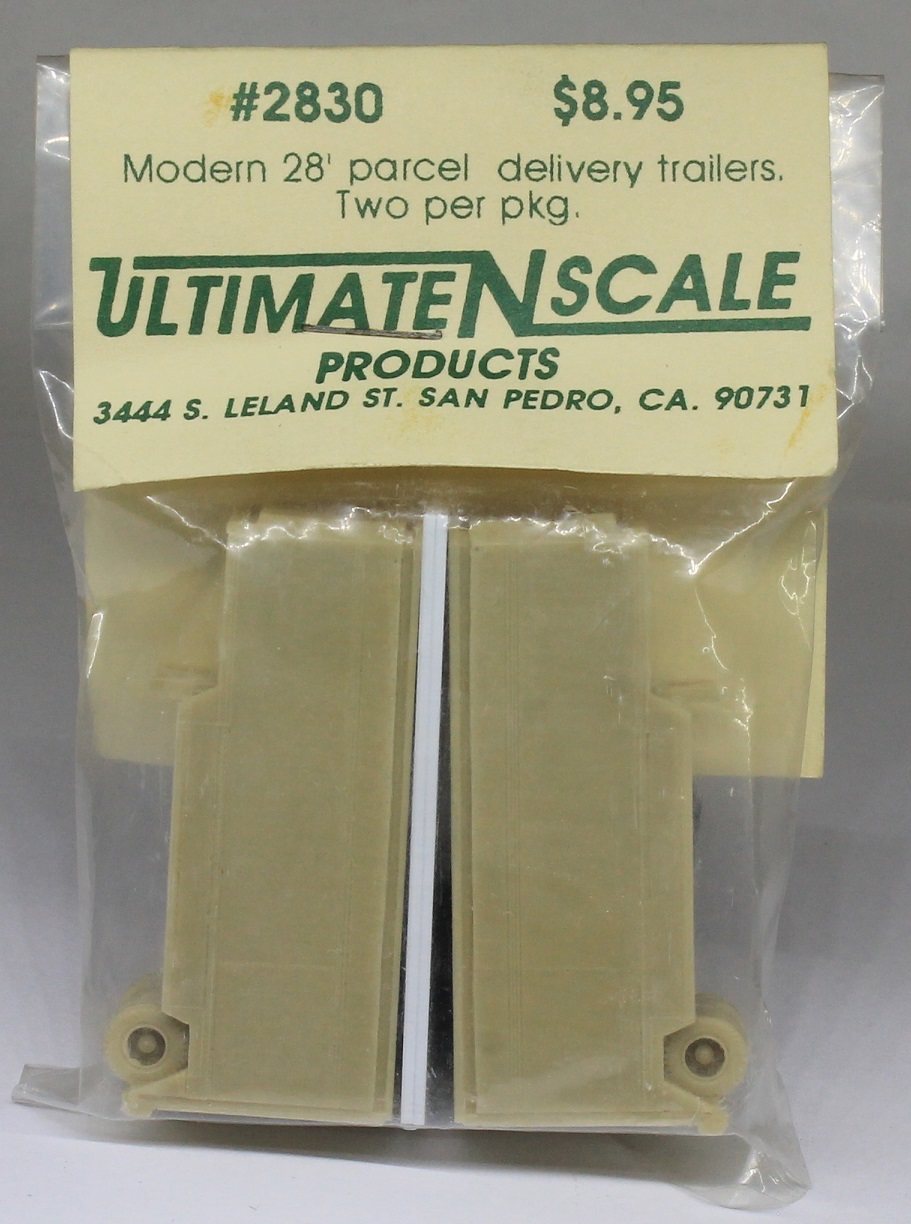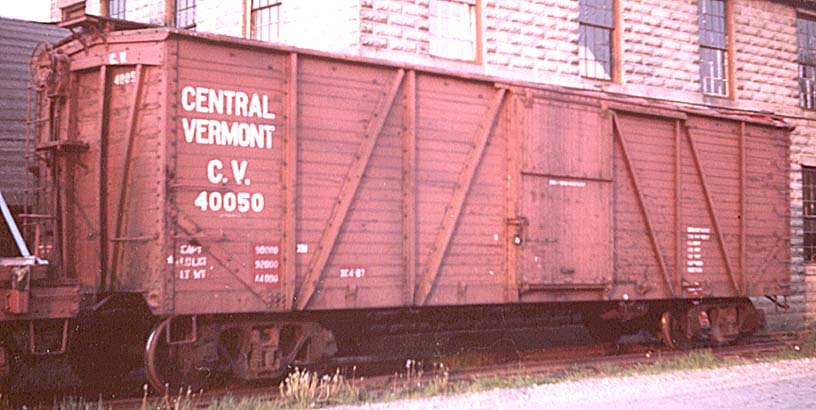Specific Item Information: Road Numbers: 564279 & 564287
Model Information: AZL chose a generic design often used. A widely popular freight car concept that lasted from WWI until well into the 1950s. Used by most railroads and found throughout North America. Depending on railroad, the box car has either Steel or Wood sliding doors. All box cars use our Archbar Truck and comes with metal stirrups.
The 40´ Outside Braced Box Car is a great compliment to our Mikado, F-units, Heavyweights and 40´ PFE Reefers. And there will be other exiting products from AZL covering the steam and transition area.
The 40´ Outside Braced Box Car is a great compliment to our Mikado, F-units, Heavyweights and 40´ PFE Reefers. And there will be other exiting products from AZL covering the steam and transition area.
Prototype History: The outside braced single sheathed box car proved to be a significant development in railway freight car technology in North America. Thousands of them saw use on North American railways beginning in the late 19th century through the 1960s. They carried bulk products such as grain and coal. They also carried packaged or bagged lading referred to as clean lading. While most of the outside braced cars were built for general service, some were built specifically to carry machinery and automobiles. For forty years freight trains on the prairies and indeed all across the country consisted of long lines of outside braced boxcars. They could commonly be found at elevators and loading platforms in communities small and large. They dominated railway yard scenes well into the 1940s.
The use of steel for the under frame (center and side sills), side and end frames initiated a new form of railway freight car building technology. Steel center sills and other under sill framing gave the cars the strength necessary to withstand the stress of longer and faster trains as well as the considerable stress involved in the contact necessary to activate closure of the knuckle coupler while being made up into trains in rail yards or from being picked up from local sidings along the line. The steel frame and the single wood side sheath minimized the weight of the car. This type of car design led to easy construction and repair. Its initial construction cost was low. The design provided secure joints between sides, ends and floors which prevented grain leakage.
The use of steel for the under frame (center and side sills), side and end frames initiated a new form of railway freight car building technology. Steel center sills and other under sill framing gave the cars the strength necessary to withstand the stress of longer and faster trains as well as the considerable stress involved in the contact necessary to activate closure of the knuckle coupler while being made up into trains in rail yards or from being picked up from local sidings along the line. The steel frame and the single wood side sheath minimized the weight of the car. This type of car design led to easy construction and repair. Its initial construction cost was low. The design provided secure joints between sides, ends and floors which prevented grain leakage.
Road Name History: The Pennsylvania Railroad (reporting mark PRR) was an American Class I railroad, founded in 1846. Commonly referred to as the "Pennsy," the PRR was headquartered in Philadelphia, Pennsylvania.
The PRR was the largest railroad by traffic and revenue in the U.S. for the first half of the twentieth century. Over the years, it acquired, merged with or owned part of at least 800 other rail lines and companies. At the end of 1925, it operated 10,515 miles of rail line; in the 1920s, it carried nearly three times the traffic as other railroads of comparable length, such as the Union Pacific or Atchison, Topeka & Santa Fe railroads. Its only formidable rival was the New York Central (NYC), which carried around three-quarters of PRR's ton-miles.
At one time, the PRR was the largest publicly traded corporation in the world, with a budget larger than that of the U.S. government and a workforce of about 250,000 people. The corporation still holds the record for the longest continuous dividend history: it paid out annual dividends to shareholders for more than 100 years in a row.
In 1968, PRR merged with rival NYC to form the Penn Central Transportation Company, which filed for bankruptcy within two years. The viable parts were transferred in 1976 to Conrail, which was itself broken up in 1999, with 58 percent of the system going to the Norfolk Southern Railway (NS), including nearly all of the former PRR. Amtrak received the electrified segment east of Harrisburg.
The PRR was the largest railroad by traffic and revenue in the U.S. for the first half of the twentieth century. Over the years, it acquired, merged with or owned part of at least 800 other rail lines and companies. At the end of 1925, it operated 10,515 miles of rail line; in the 1920s, it carried nearly three times the traffic as other railroads of comparable length, such as the Union Pacific or Atchison, Topeka & Santa Fe railroads. Its only formidable rival was the New York Central (NYC), which carried around three-quarters of PRR's ton-miles.
At one time, the PRR was the largest publicly traded corporation in the world, with a budget larger than that of the U.S. government and a workforce of about 250,000 people. The corporation still holds the record for the longest continuous dividend history: it paid out annual dividends to shareholders for more than 100 years in a row.
In 1968, PRR merged with rival NYC to form the Penn Central Transportation Company, which filed for bankruptcy within two years. The viable parts were transferred in 1976 to Conrail, which was itself broken up in 1999, with 58 percent of the system going to the Norfolk Southern Railway (NS), including nearly all of the former PRR. Amtrak received the electrified segment east of Harrisburg.
Brand/Importer Information: AZL is the leader in North American Z scale locomotives and rolling stock. Since 2000, AZL has released a vast variety of freight, passenger and locomotives. AZL continues to push the boundaries of Z scale with amazing details and incredible performance. No matter if you are looking to run steam, or the most modern diesels, AZL has something for you.
Item created by: CNW400 on 2021-07-01 15:29:32
If you see errors or missing data in this entry, please feel free to log in and edit it. Anyone with a Gmail account can log in instantly.
If you see errors or missing data in this entry, please feel free to log in and edit it. Anyone with a Gmail account can log in instantly.


